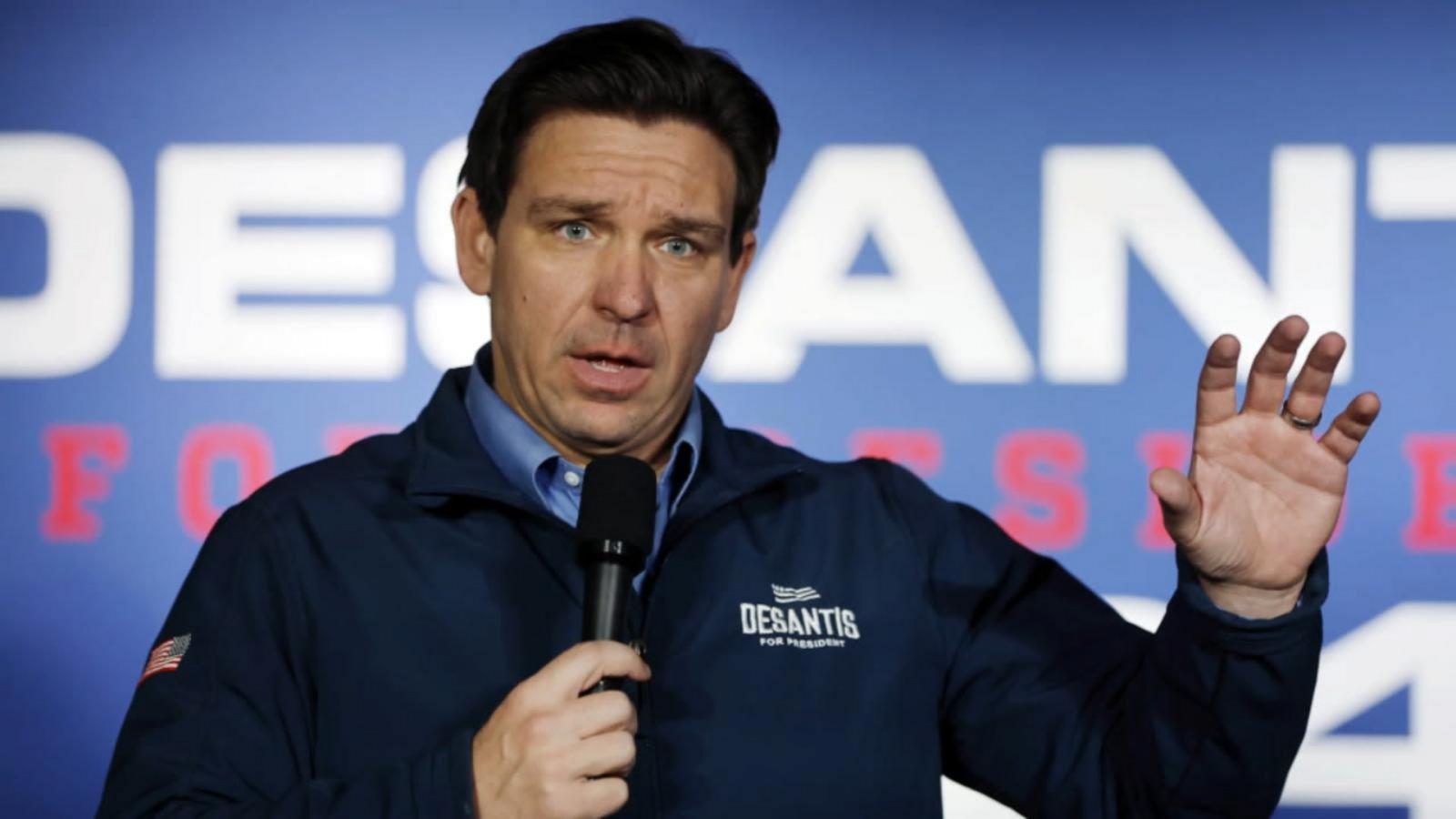Ron DeSantis projected confidence in the video that started his presidential campaign in May.
To shouts, he strolled across a flag-adorned stage and promised his fans “the Great American Comeback”.
Seven months later, the guy dubbed “Trump 2.0” and “Trump without the baggage” has dropped his presidential bid. Along with his resignation, he acknowledged that there is no “clear path to victory” against the undisputed front-runner for the Republican nomination.
So, where did things go wrong for Florida’s governor, who was once seen as a political rock star for his fight against “woke ideology” and impressive track record in office?
There were issues with the candidate himself, including a perceived lack of charisma and awkwardness with voters and the campaign he ran. But the actual reason for his failure was the guy he was up against, Donald Trump.
Where Did It All Go Wrong For Ron DeSantis?
Matthew Bartlett, a Republican strategist based in New Hampshire, said he couldn’t compete with a figure with unshakable devotion from his supporters.
“He [Trump] has been their political identity, and maybe even personal identity, for the better part of a decade,” he said.
Looking back on the campaign, observers claimed it was nearly impossible for a rookie on the national scene. Mr. DeSantis was competing against an incumbent with name recognition, unlimited funds, and a loyal base of voters.
A year ago, when the fight for the White House had started, it did not feel this way.
Mr DeSantis began 2023 as a credible challenge to Donald Trump. When the former president first announced his candidature, Mr DeSantis was polling at roughly 35%, putting him within striking reach of his adversary.
He also had momentum from his record-breaking re-election triumph as Florida governor the previous November. Many criticised Mr Trump for the Republicans’ poor midterm results.
However, that proved to be the pinnacle of DeSantis’ campaign.
By May, when the governor publicly announced his presidential campaign in an interview with Elon Musk marred by technical difficulties, his poll ratings had plummeted to less than 20%. Mr Trump had risen back above 50%.
Where Did It All Go Wrong For Ron DeSantis?
According to strategists, delaying the official launch lost months. More crucially, it allowed Mr Trump to restore his image as a political outsider by using the national news surrounding his various legal difficulties.
“[The DeSantis campaign] started pretty late, [and] raised a tonne of money obviously,” David Kochel, a long-time Iowa Republican strategist, told the BBC. “But by then, Trump was going after him with a hammer. I am not sure if they had effective responses. I believe it took them a long to engage.”
While Mr. DeSantis may have quietly hoped that the former president’s legal woes would catch up with him, he never chastised Mr. Trump for them, instead frequently echoing his rival’s accusations that he was unfairly persecuted.
“It seems like every time [Mr Trump] was indicted, his poll numbers went up,” said Timothy Hagle, a political science professor at the University of Iowa. “And to some extent, that’s not surprising, because it’s kind of a ‘rally around the chief effect’.”
DeSantis first tried not to insult Mr Trump, but the former president displayed no such restraint, frequently using nicknames such as “Meatball Ron” and “Ron DeSanctimonious”.
Mr Trump has annihilated every Republican opponent he has faced since joining politics in 2015, but few have decided, like Mr DeSantis did, to run to Mr Trump’s right.
He focused on cultural battles rather than the economic issues Americans were most concerned about, leaving the moderate lane in the race to Ms Haley.
When Mr DeSantis was thrust into the national spotlight, his weaknesses as a candidate were highlighted, particularly in comparison to Mr Trump’s outsized character.
“When you watch DeSantis mosey around a room, it looks like he feels it’s something he has to do to take centre stage,” Mary Civiello, an executive communications coach and body language specialist, told the BBC at the time of his debut. “It also appears to be an unusual occurrence. You could tell he’s apprehensive about it, as one would expect.”
That embarrassment was especially prevalent in Iowa and New Hampshire, the first two states to vote, where retail politics are significant.
Where Did It All Go Wrong For Ron DeSantis?
“He has a robotic personality that does not resonate with voters,” Sean Westwood, a Dartmouth College government professor, said of DeSantis. “In a world where almost all of his attention was focused on Iowa, he still barely managed to win over [Nikki] Haley.”
By edging past Ms Haley for second place in Iowa on January 15, the DeSantis campaign appeared to have bought themselves some time.
Supporters at the caucus night watch party in West Des Moines appeared genuinely delighted with the outcome, yelling “Ron!” and waving banners. In several interviews, they expressed confidence that he was in a solid position in the future.
“He’s the clear alternative to President Trump,” college student Jeff Schreier stated. “Voters can coalesce around him going into New Hampshire and South Carolina.”
In the end, Ron DeSantis voters in neither state will get a chance to support him. By suspending his campaign and endorsing Mr Trump before the primaries, the Florida governor avoids harming his standing with Trump supporters.
At 45 years old, he realises this is not the end of the path.
Jack Figge, one of his supporters, was also looking ahead when he spoke to the BBC following the disappointing outcome in Iowa. “This is a big year to see who our leader will be, but I’m much more interested in 2028.” He went on to say. “DeSantis is my guy.”
SOURCE – (BBC)











